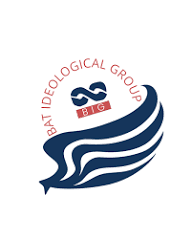Ekiti Varsity Chancellor Unveils Plan to End Medical Tourism in Nigeria

Ekiti State University (EKSU) Chancellor, Dr. Tunji Olowolafe, has unveiled a comprehensive plan aimed at curbing the rising trend of medical tourism among Nigerians, emphasizing that the country loses billions of dollars annually to citizens seeking medical treatment abroad.
Speaking at the 2025 Nigerian Medical Association (NMA) Healthcare & Medical Expo, themed “Reversing Medical Tourism: Africans Investing in Africa,” Dr. Olowolafe highlighted that the continuous outflow of patients and funds is not only a financial burden but also undermines national confidence in the local healthcare system. He stressed that Nigeria, and Africa at large, must shift from being mere consumers of healthcare innovations to creators of medical breakthroughs To achieve this, the EKSU chancellor outlined a “four-pillar blueprint” aimed at transforming the nation’s medical landscape. The pillars include investment in medical education, advancement of research and innovation, integration of technology and digital health tools, and the creation of a robust healthcare-education ecosystem. Dr. Olowolafe explained that connecting universities, hospitals, laboratories, and private investors is essential to raising the standard of care, retaining top medical talent, and attracting global patients In order to reverse medical tourism, we must build local capacity for world-class healthcare. This involves investing in our doctors, researchers, and facilities to ensure that Nigerians can access specialized care at home,” he said The chancellor also emphasized the importance of talent retention, noting that many Nigerian medical professionals seek opportunities abroad due to limited local prospects. By providing better facilities, research opportunities, and collaborative platforms, he believes Nigeria can reduce the brain drain and encourage professionals to remain in the country The initiative aligns with the federal government’s ongoing efforts to strengthen tertiary hospitals, develop centres of excellence, and provide specialized care in areas such as oncology, cardiology, and nephrology. Analysts note that if successfully implemented, this plan could not only curb medical tourism but also position Nigeria as a destination for high-quality healthcare services in Africa However, experts caution that achieving these objectives will require substantial funding, infrastructure development, and sustained political will. Trust must also be rebuilt among patients, who must feel confident in the quality of care provided locally According to the NMA, Africa loses around US$10 billion annually to medical tourism, with Nigeria accounting for a significant portion of this outflow. Addressing this challenge, Dr. Olowolafe believes, is key to ensuring that the country harnesses its medical potential, retains talent, and attracts investment in its healthcare sector The EKSU chancellor’s initiative represents a bold step toward transforming Nigeria’s medical sector, demonstrating a commitment to providing quality healthcare within the country while reducing the financial and human capital lost to medical tourism abroad.









